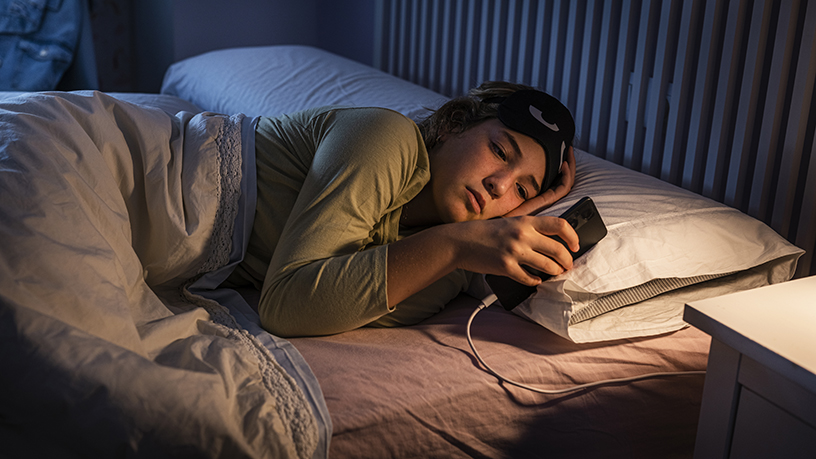On this page
- When should I seek help for my mental health?
- When should I see a GP for my mental health?
- When should I seek urgent or emergency care for my mental health?
- Where can I seek help in a mental health crisis?
- What kind of treatment can I expect from emergency services?
- Can I call emergency services for a friend or loved one in a mental health crisis
Key takeaways
- Your mental health can change over time, and you may need extra support if you’re struggling.
- Your GP is the right person to speak to if you would like to know more about mental health and how to improve your wellbeing.
- If you are in crisis, go to your local hospital emergency department or call triple zero (000).
If you or someone you know is in crisis and need urgent help call triple zero (000) and ask for an ambulance.
If you’re struggling with your mental health, it’s important to seek the right kind of help.
But it can be hard to know when to see your GP, or more urgent help from emergency services.
When should I seek help for my mental health?
Just like your physical health, no one is immune from mental health challenges.
Anxiety and depression are the most common forms of mental health condition in Australia.
While it’s normal to have anxious or sad feelings from time to time, if those feelings persist for 2 weeks or more, or interfere with how you live your life, help is available.
If your thoughts, feelings or behaviours are negatively impacting your ability to work, enjoy activities that used to bring you joy, engage happily with other people, or live your life healthfully it’s important to seek help.
Also, if you notice any changes in your appetite, energy levels or sleep patterns, that could be a sign that you could use some extra supports.
When should I see a GP for my mental health?
Your GP is a good place to start when having a conversation about your mental health.
“Your mental health is something that must always be nurtured,” says GP, Dr Samantha Saling.
“Checking in with your GP during the good times ensures that we have a knowledge of your everyday health and lifestyle and can identify any clear deteriorations in mental health.”
“Of course, seeking GP input during any mental health dips is important, but finding a GP you can work with long term is an even better step to stay on top of your mental health.”
If this is the first time you have spoken to your GP about your mental health, it’s best to book a longer appointment so you have time to discuss how you’re feeling.
It might also be a good idea to make some notes ahead of time about the things that are bothering you or how your mental health is impacting your life. It can also be helpful for your GP to know how long you’ve been feeling like this and if you’ve ever felt this way in the past.
Your GP will ask you several questions that might include if you have a family history of depression or anxiety or if you have experienced any stress or trauma over the recent weeks or months. That might include things like the breakdown of a relationship, moving home, losing a job or any physical health challenge you may currently have.
“I describe being a GP like being a “professional friend”,” says Dr Saling. “We are there to support and guide our patients, in the good times and bad. We can do this with practical measures such as supportive counselling, as well as administrative measures, like assisting with a mental health care plan in the event that patients require psychological assistance.”
Your GP can help support your mental health in many ways. This can include creating a mental health plan, which gives you access to Medicare subsidised psychological counselling services. They may also recommend some lifestyle treatments such as reducing your use of alcohol, increasing exercise and improving your diet.
Medication may also be prescribed.
Everything you discuss with your GP is private, says Dr Saling.
“GPs are bound by confidentiality requirements. The only time we may override that is when we are concerned that a patient may be at harm to themselves or others, and we require external assistance.”
When should I seek urgent or emergency care for my mental health?
Sometimes it may be necessary to seek urgent help for mental health issues.
You may need to seek immediate help if you:
- Have suicidal thoughts
- Intend to act on suicidal thoughts
- Feel you are at risk or harming yourself or someone else
- Are having hallucination or delusions
- Are displaying aggressive behaviours.
“I always say to my patients, in a mental health crisis, if the clinic is closed and you don’t know what to do, seek urgent medical assistance just like in any emergency,” says Dr Saling.
Where can I seek help in a mental health crisis?
If you’re not in immediate crisis but need emergency help go straight to your local hospital emergency department. If you cannot get to a hospital or a loved one is refusing to go you can call a mental health crisis support service specific to your state and territory:1
NSW call the Mental Health Line on 1800 011 511
VIC call Lifeline on 13 11 14, Beyond Blue on 1300 22 4636 or Suicide Call Back Service on 1300 659 467. You can also use Victoria’s Mental Health Services directory to find specialist mental health services around Victoria.
QLD call 1300 MH CALL on 1300 642 255
SA call the Mental Health Triage Service on 13 14 65
WA call the Mental Health Emergency Response Line on 1300 555 788 (Metro) or 1800 676 822 (Peel)
TAS call the Mental Health Services Helpline on 1800 332 388
NT call the Mental Health Line an 1800 682 288
ACT call the Access Mental Health Line on 1800 629 354
What kind of treatment can I expect from emergency services?
If you attend a hospital for a mental health crisis, you will be assessed by a mental health professional. You may need to be admitted for treatment. Any treatment approach will be discussed with you. However, if your doctors conclude that you cannot make decisions for yourself or are at risk of harming yourself or others, you can be admitted involuntarily to ensure safety.
“This is a common fear,” says Dr Saling. “Hospital staff are well trained to triage and treat patients with mental health conditions requiring emergency input.”
“Sometimes this involves safety netting with appropriate supports and services, and sometimes this requires hospital admissions. The latter circumstance is less common; most patients are treated in the community by their GPs, psychologists, and counsellors.”
Can I call emergency services for a friend or loved one in a mental health crisis
If a friend or loved one is having a mental health crisis and needs emergency care you can call triple zero (000) on their behalf.
It’s important to prioritise your own safety at all times.
Approach your loved one carefully and speak calmly, avoiding saying or doing anything that could cause distress.
Don’t put yourself or anyone else in immediate danger. Where possible try to remove anything that could harm you or your loved one, but do not try to forcibly remove any weapons that could endanger you or others.1
You wouldn’t think twice about going to emergency or calling an ambulance for a broken bone or chest pain, the same care should be taken with your mental health.
The right support, at the right time can make all the difference.


At Bupa, trust is everything
Our health and wellbeing information is regularly reviewed and maintained by a team of healthcare experts, to ensure its relevancy and accuracy. Everyone's health journey is unique and health outcomes vary from person to person.
This content is not a replacement for personalised and specific medical, healthcare, or other professional advice. If you have concerns about your health, see your doctor or other health professional.
You might also like
5 ways to break the worry cycle and reduce anxiety
Anxious worrying can be destabilising. Discover 5 strategies to break the worry cycle, reduce anxiety and protect your mental and physical health.
How to deal with social anxiety
If the thought of social events fills you with fear, you may be suffering from a social anxiety disorder. Learn more.
Sleep and anxiety: Breaking the cycle
Can’t sleep because you’re worrying or is worrying about not being able to sleep keeping you awake? Understanding anxiety at night may help you sleep easier.
How to choose the right mental health specialist for your child
There are a lot of people who can support your child's mental health. Here's a quick guide to different types of mental health practitioners to help get you started.





